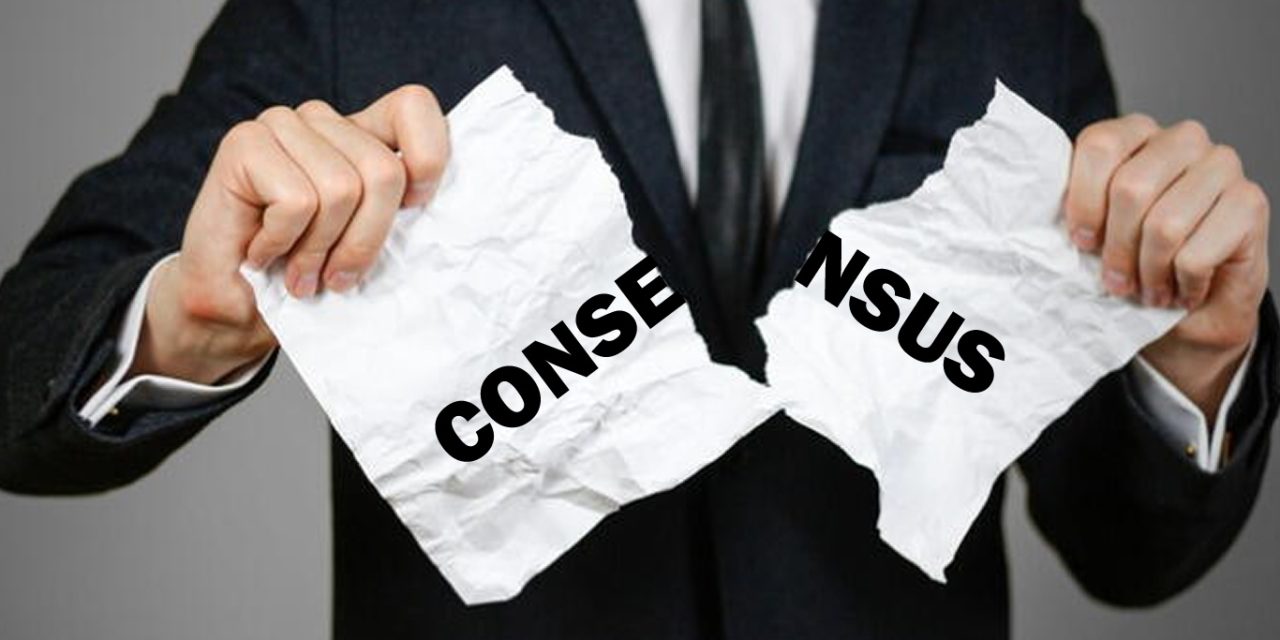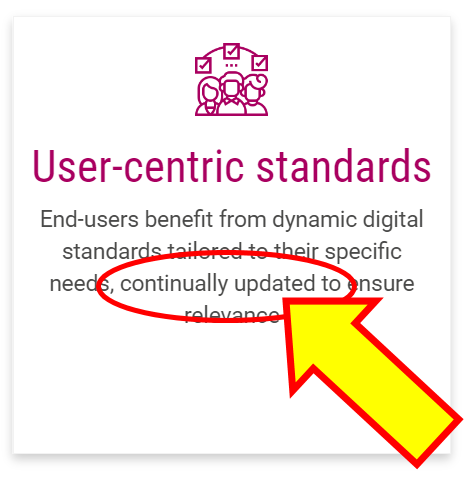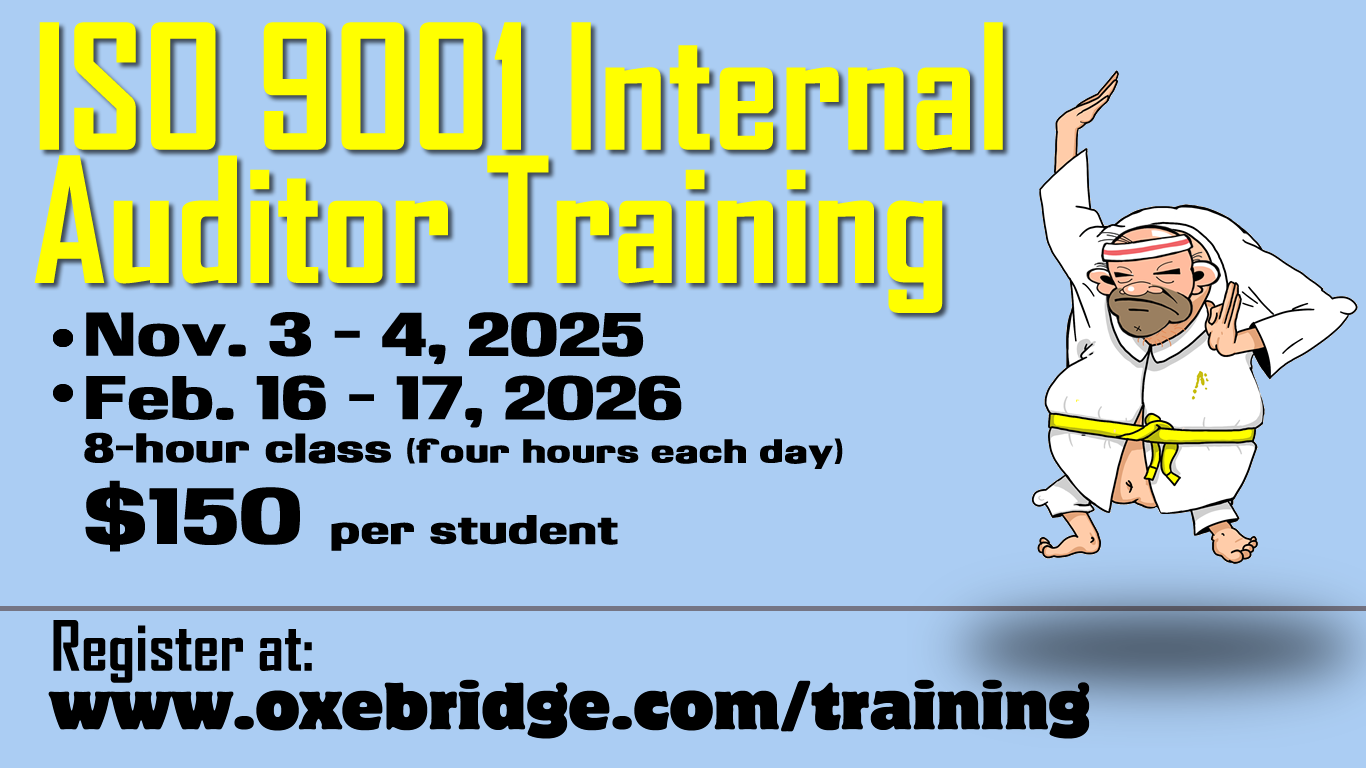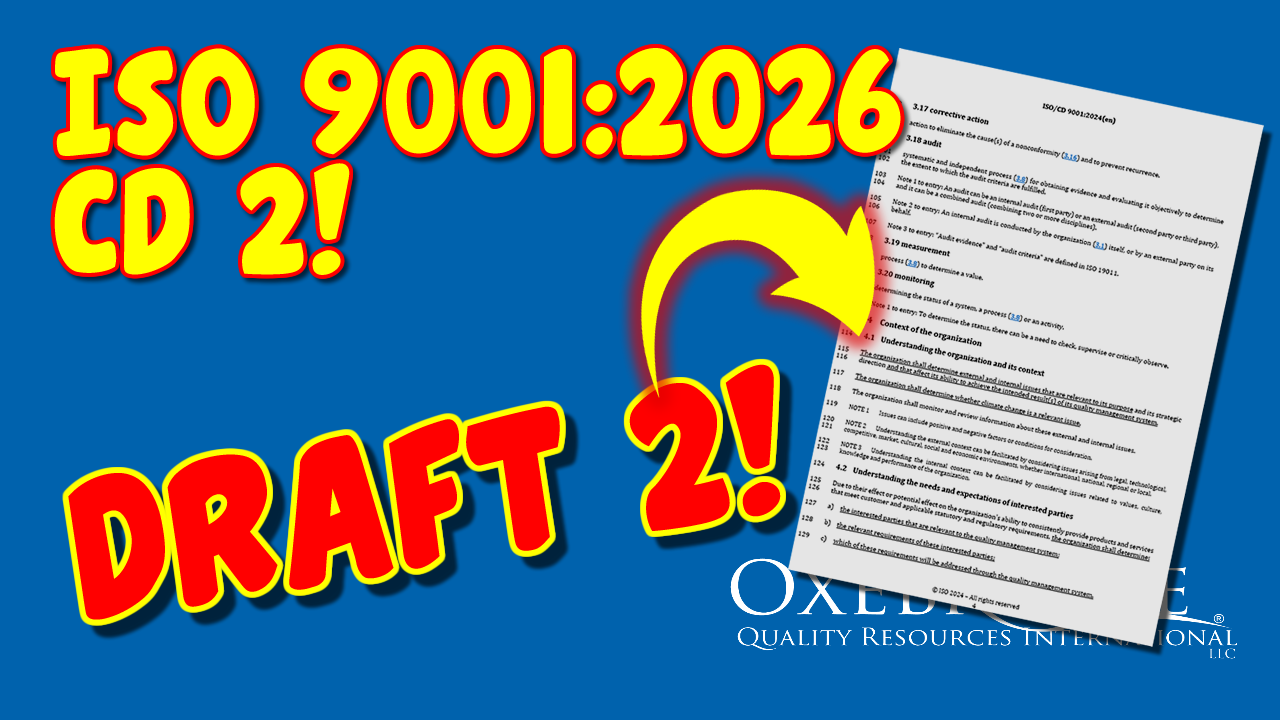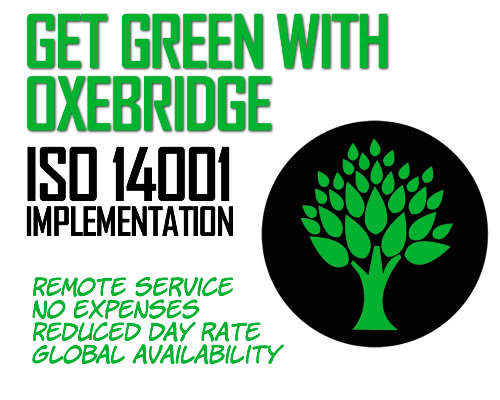The ISO / IEC Smart initiative should scare anyone who believes international standards should be written by subject matter experts and then approved through democratic consensus voting. Because “ISO Smart” will finally destroy both of those key cornerstones.
As we reported this past June:
The “ISO Smart” program began development in 2019, and was largely centered on ensuring standards were drafted in a “machine-readable” format. For technical standards, machine-readable documents could be incorporated into computerized production lines. For example, if a standard indicates a desired operating temperature, connected furnaces could “read” the requirement directly, and apply the temperature settings to ensure conformity with the standard automatically.
While both ISO and IEC are trying to emphasize the (dubious) benefits of machine-readable standards, the real reason for the initiative is commercial: the two standards bodies can make a lot more money, faster, if they cut out the slow processes involved in obtaining international consensus before publishing standards.
(Despite being non-profits, ISO and IEC are managed by executives who get paid enormous salaries, and who are — individually — very much not non-profit.)
This means two things. First, ISO standards will be switched to an expensive subscription model, where you no longer buy a PDF document and own it, but instead have to log into a dedicated website to access your standards. If you don’t pay your annual fee, you lose access to the standard. This will dramatically increase costs for standards.
Second, ISO and IEC boast about how “Smart” standards will be “constantly maintained up to date” and “continually updated.”
The only way standards can be updated this quickly is if both ISO and IEC abandon long-standing rules requiring that standards be developed by consensus (meaning voting) and by subject matter experts (meaning dedicated technical committees.) Instead, updates to standards will have to bypass all voting and committee work, in order to hit their “real-time updates” goal. You can’t have real-time updates if you are waiting for Australia and Congo to find consensus.
Back in 1996, the World Trade Organization was gravely concerned about the way nascent ISO standards were being developed. Specific to ISO 14000, official minutes of a meeting in January of that year gave a glimpse into those discussions:
The [WTO] representative of New Zealand … raised questions about the criteria contained in the ISO 14000 standards and the nature of participation in the development of international standards, particularly at the technical stages, e.g., the membership of expert working groups of the Technical Committee on Eco-labelling.
In response, ISO tried to allay concerns by emphasizing its standards were developed under “consensus“, and that over 100 nations had included a public review of the draft before approving it:
The representative from the ISO reported that in August 1995, five draft standards of the ISO 14000 series had been circulated to the 115 member countries of ISO for a six-month technical enquiry to verify technical consensus. He said that consultations would end on 10 February 1996, comments received could be resolved during the following months, the final draft would be submitted for final approval before July 1996 and the standards would be published immediately after the termination date of the final consultation. He noted that most of the ISO’s 115 members submitted standards for national public enquiry.
Now, ISO has moved in the opposite direction, more obsessed with pumping out standards fast, and by circumventing the entire technical committee and voting processes.
In a nearly comical self-owning post on LinkedIn, IEC boasted about its progress, showing photos from Smart “workshop” in Geneva. The photos included one of the so-called “experts” on digitizing standards sitting in a room covered with paper and sticky notes, using felt-tip pens to mark up paper. Other than a monitor hanging on the back wall, there isn’t a digital device anywhere in sight. There is no evidence any modern online collaboration methods were being used at all.
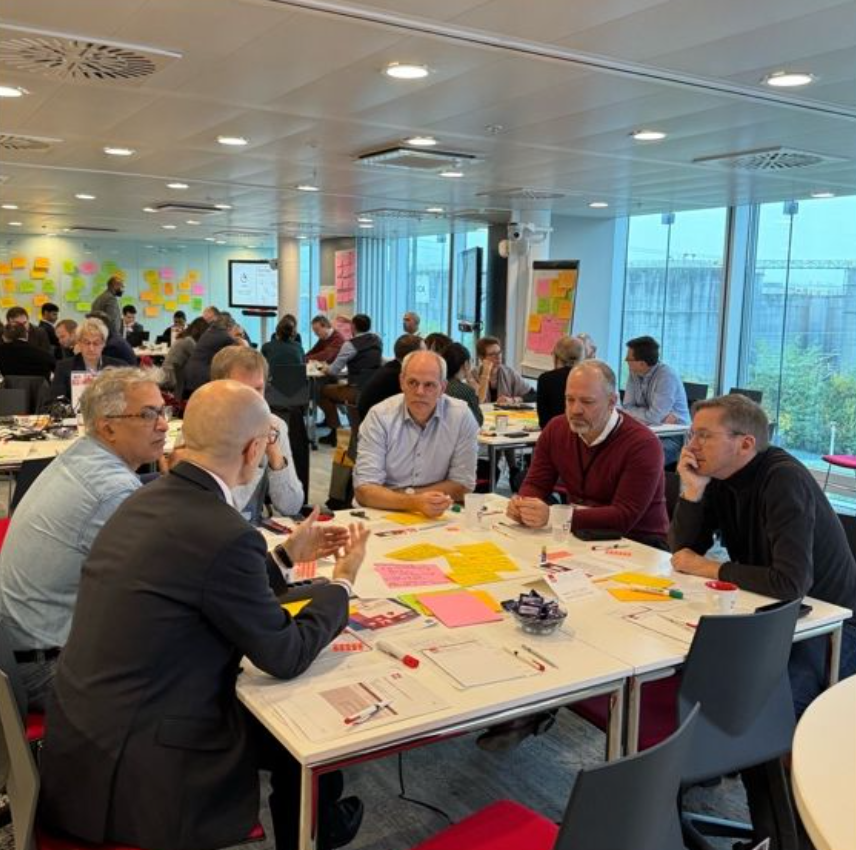
Apparently, “digital” standards development means using your digits — as in, fingers.
So the digital “experts” are using pen-and-paper, at physical meetings, to plan how they will move to fully-digital standards development and publication. Make sense?
The post was put up by IEC’s Head of Sales and Business Development, Guilaine Fournet. So I asked her if ISO and IEC were “doing away with the notion of consensus entirely.” She simply answered, “ISO and IEC will address this important topic.”
As in, later. As in, they haven’t addressed it yet, despite “Smart” being launched four years ago, and already deep into (admittedly cringey) workshopping sessions.
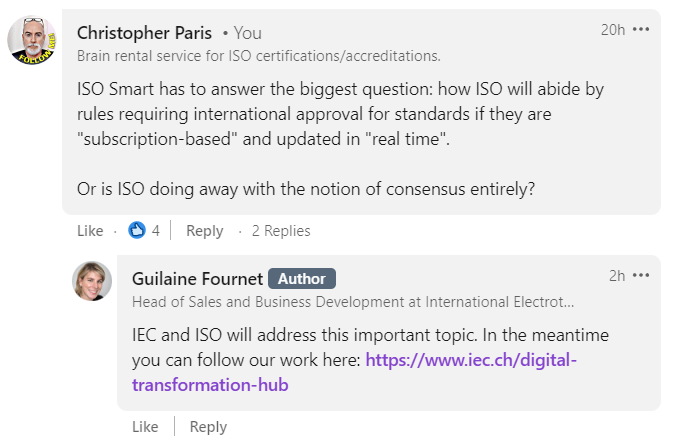
To me, that probably should have been the FIRST thing they did. But in reality, they already have addressed it, just in secret, and already decided that consensus needs to be thrown out. now it’s just a matter of taking a few years to figure out how to market that decision without alerting people to the fact that “consensus” has been tossed into the dustbin of history, in favor of Sergio Mujica’s authoritarian, oligarchical approach to commercializing standards.
This makes sense when you understand Mujica’s background. He came from his prior role as head of the customs agency in Chile, during the corrupt tenure of Michelle Bachelet. His own agency was investigated for enabling drug trafficking and money laundering, although he escaped arrest. Mujica’s worldview of government is neither socialist nor free-market capitalist, but something closer to Putin’s anarcho-capitalist oligarchy. Mujica adopted authoritarian, Soviet-style contempt for democracy in order to advance purely commercial interests. ISO, under Mujica, is no longer run as either a non-profit or non-governmental organization (NGO). Instead, he runs it as a ruthless for-profit publishing company, seeking to destroy his main market competitors: the regulators of world governments. Mujica’s goal is to replace national laws with ISO standards.
The WTO should step up, as they did in the 1990s,… but will they? All signs point to WTO ignoring this. The WTO of the 2020s is a very different creature, and has taken a hands-off to managing ISO and IEC. They are allowing Mujica’s ISO to run roughshod over the WTO Technical Barriers to Trade regulations, and have literally refused to enforce those rules, telling me that WTO can only invoke sanctions against nations, not companies. So why create the TBT rules at all, then?
So, will ISO and IEC ever address the problems raised by Smart, or simply clamp down and continue to pretend this isn’t a problem worth talking about? Will Fournet ever manage to come up with an actual answer to the question posed to her?
We shouldn’t hold our breath waiting.
Christopher Paris is the founder and VP Operations of Oxebridge. He has over 35 years’ experience implementing ISO 9001 and AS9100 systems, and helps establish certification and accreditation bodies with the ISO 17000 series. He is a vocal advocate for the development and use of standards from the point of view of actual users. He is the writer and artist of THE AUDITOR comic strip, and is currently writing the DR. CUBA pulp novel series. Visit www.drcuba.world

